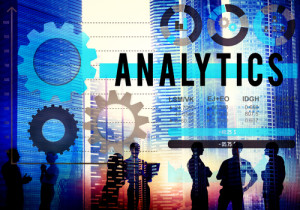Companies know that the data revolution will determine which businesses thrive in the new technological age and which are forgotten—no pressure or anything.
In truth, businesses feel pressured to move beyond data competence and into a new realm of data-driven operation. They want _to leverage _data—not merely collect and store data. But current systems make it difficult to unlock the value data has promised.
Data can enhance a business’s positioning and improve revenue by providing deep insight into market trends and customer behavior. If that data is locked up behind mysterious data lakes and only accessible to data scientists, your data can’t and won’t deliver.
A monumental shift must happen in the way we deliver and disseminate data. What’s needed is a democratization that balances access with security. For a business to be data-driven, everyone must have the data they need through a company-wide data culture.
What it means to have a data culture
According to a survey by NewVantage Partners, companies are embracing analytics and even artificial intelligence-driven initiatives. Still, few are taking the next steps towards a fully integrated, data-driven culture. The survey found that nearly all respondents recognized the need to build a data-driven culture, but just a third of respondents from established firms had managed to do so.
For a business to realize the true potential of data, companies need a pervasive use of data and analysis. Accomplishing this means shifting all departments cohesively towards utilizing insights from data and building data-driven decisions into day-to-day operations.
If you’re lucky enough to have a data science team already, you’ve watched this happen departmentally. Move that mode of operation to the rest of the company, and you’ve accomplished the first steps toward adopting a company-wide data culture.
- C-suite and other decision-makers must decide to rely on data insights to drive business decisions, both large and small, helping direct questions and receive feedback.
- Departmental employees follow this lead, implementing data into day-to-day operations, contributing inquiries from their specific perspective, and facilitating the transfer of data to the appropriate place in the pipeline.
- Data scientists and engineers build the infrastructure and algorithms to harness, store, and move data to the appropriate place, providing the story and interpreting results with department leads and decision-makers’ expertise.
With a robust pipeline like this, data becomes a living thing, not just storage. The movement of data and its rapid analysis secures insights in real-time or near real-time and forms the foundation for better, more efficient decisions.
#analytics #tools and tactics #anaconda #data democratization #data scientists
